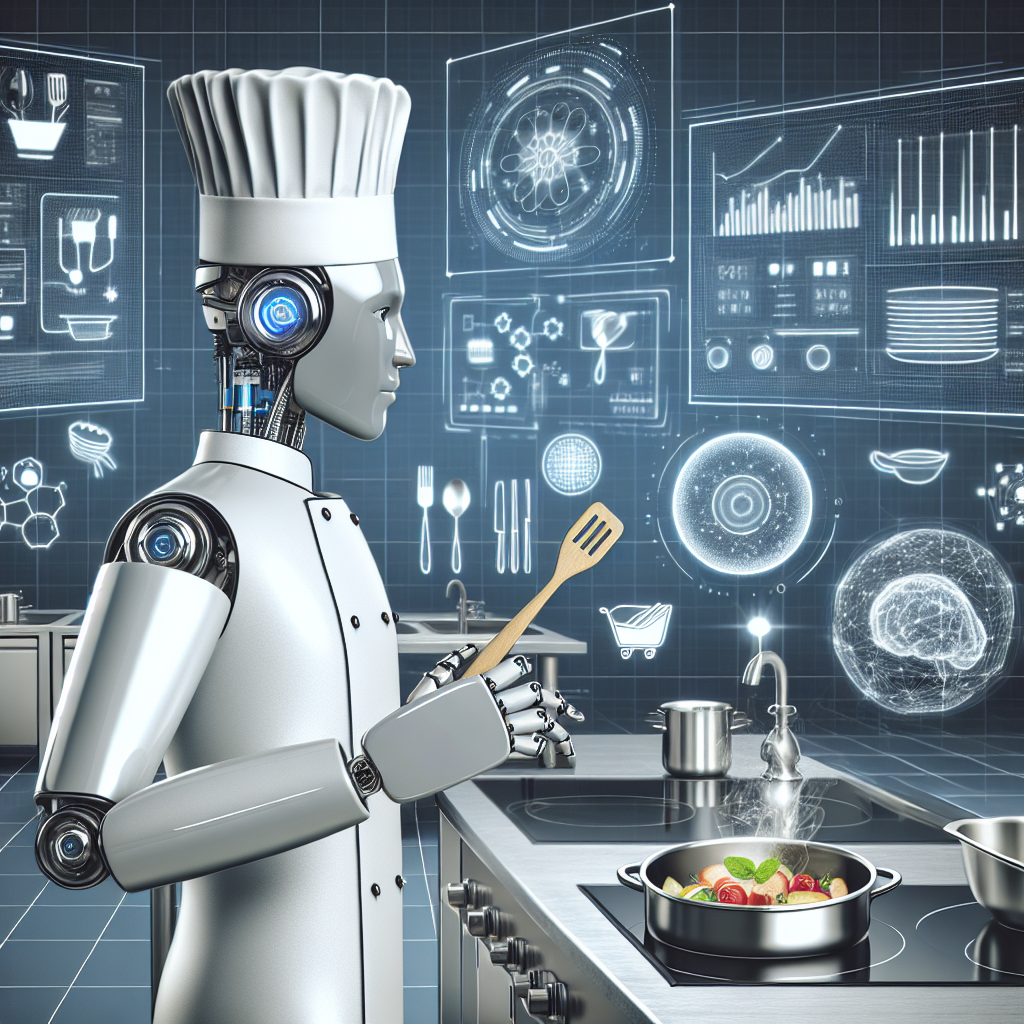In recent years, the use of artificial intelligence (AI) technology has become increasingly prevalent in various industries, including the restaurant industry. One of the key areas where AI technology is making a significant impact is in enhancing food safety. With the help of AI-powered tools and systems, restaurants can now better monitor and manage food safety protocols, ultimately reducing the risk of foodborne illnesses and ensuring the highest standards of food safety for their customers.
There are several ways in which AI technology is being utilized to enhance food safety in restaurants. One of the most common applications of AI in this context is in the monitoring of food storage and temperature control. AI-powered sensors can be installed in refrigerators and freezers to constantly monitor the temperature and humidity levels, alerting restaurant staff if there are any deviations from the optimal conditions. This helps to prevent food spoilage and reduce the risk of bacterial growth, ensuring that the food served to customers is safe to consume.
Another important aspect of food safety in restaurants is the proper handling and preparation of food. AI technology can be used to track and analyze food preparation processes, ensuring that all food safety protocols are being followed correctly. For example, AI-powered cameras can be installed in kitchen areas to monitor food handling practices in real-time, flagging any potential issues such as cross-contamination or improper cooking temperatures. This real-time monitoring helps restaurant staff to identify and address any food safety risks immediately, before they have the chance to escalate.
AI technology can also be used to improve the traceability of food products in restaurants. By implementing blockchain technology, restaurants can create a secure and transparent record of the entire supply chain, from farm to table. This allows restaurant managers to track the origin of each ingredient used in their dishes, as well as monitor the quality and safety of the food products throughout the supply chain. In the event of a food safety issue, such as a recall or contamination, this traceability system can help restaurants quickly identify and remove affected products, minimizing the impact on customers and the reputation of the business.
In addition to monitoring and managing food safety protocols, AI technology can also be used to predict and prevent potential food safety hazards. By analyzing large amounts of data, AI algorithms can identify patterns and trends that may indicate an increased risk of foodborne illnesses or contamination. For example, AI can analyze customer feedback, health department reports, and other relevant data sources to identify areas of concern and recommend proactive measures to address them. This predictive capability allows restaurants to take a proactive approach to food safety, rather than simply reacting to issues as they arise.
Overall, the use of AI technology in restaurants has the potential to revolutionize the way food safety is managed and maintained. By leveraging the power of AI-powered tools and systems, restaurants can enhance their food safety practices, reduce the risk of foodborne illnesses, and ensure the highest standards of food safety for their customers.
FAQs:
Q: How can AI technology help restaurants improve food safety?
A: AI technology can help restaurants improve food safety in a variety of ways, including monitoring food storage and temperature control, tracking food preparation processes, improving traceability of food products, and predicting and preventing potential food safety hazards.
Q: What are some examples of AI-powered tools that restaurants can use to enhance food safety?
A: Some examples of AI-powered tools that restaurants can use to enhance food safety include sensors for monitoring temperature and humidity levels, cameras for real-time monitoring of food handling practices, and blockchain technology for traceability of food products.
Q: How can AI technology help restaurants prevent foodborne illnesses?
A: AI technology can help restaurants prevent foodborne illnesses by identifying and addressing potential food safety risks in real-time, as well as predicting and preventing future hazards through data analysis and predictive algorithms.
Q: What are the benefits of using AI technology to enhance food safety in restaurants?
A: The benefits of using AI technology to enhance food safety in restaurants include reducing the risk of foodborne illnesses, improving customer trust and loyalty, minimizing food waste and losses, and ensuring compliance with food safety regulations.

